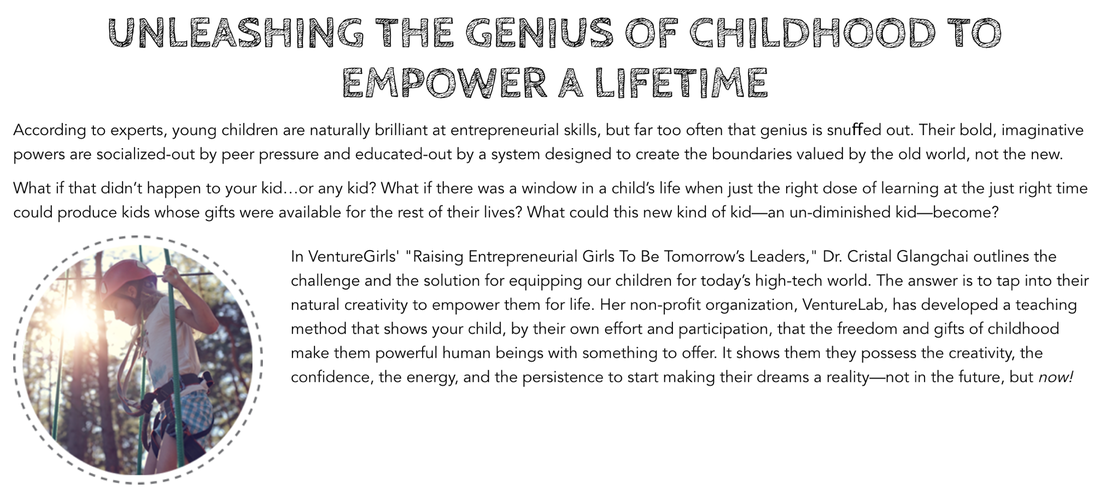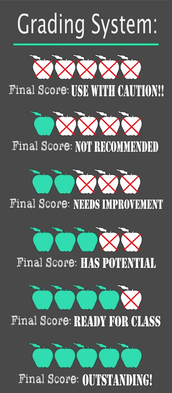
Dr. Glangchai herself is a scientist, entrepreneur, and mentor, and the suggestions from this book come from both research and her own experiences.
Part one of the book begins by outlining “The Problem.” Dr. Glangchai begins by discussing stereotypes and biases and how these work together to limit girls’ experiences and opportunities. Cultural biases such as “science is for boys”, “a business founder is a guy”, and “a leader looks like a man” are all addressed.
Throughout this section (and the book), I greatly appreciated Dr. Glangchai’s blending of her own experiences and anecdotes with research and big picture trends. She does an excellent job of explaining these issues from both the micro and the macro level, and I think that this approach really helps paint a complete picture of the significance of the issues we’re facing.
Part two of the book moves on to discussing “The Solution.” Throughout this section, Dr. Glangchai offers ideas and strategies for helping encourage the entrepreneurial spirit in young girls throughout their school, work, and life. She also spends time breaking down why developing entrepreneurial skills are so important, and how they are interwoven with ideas such as critical thinking, problem solving, and developing a growth mindset. Dr. Glangchai also offers a practical idea for what this solution can look like by exploring VentureLab, a nonprofit that she developed to “provide kids with an entrepreneurial mindset and skill set designed to help them learn and apply math and science techniques to solve real-world challenges.”
Finally, part three of the book is my personal favorite, and it discusses “How to Raise a VentureGirl”. These chapters (which comprise the bulk of the book) offer specific experience-based and research-based strategies for supporting the development of these types of skills. Dr. Glangchai provides tons of example lessons and activities that both parents and teachers can easily implement in their home or their classroom. The activities use simple, everyday materials so that they can be implemented even when there are resource limitations to consider.
Overall, I greatly appreciate not only Dr. Glangchai’s conceptualization of the problem, but also her approach to the solution. Her explanation of the why we see so few girls in STEM and leadership roles going beyond the typical surface level statistics and explores the issue at a deeper, more systemic and intersectional manner. Plus, her blend of experiences, anecdotes, and research help to create a better understanding of not just what we’re seeing, but why we’re seeing it. Dr. Glangchai’s collection of activities, lessons, and ideas for how to promote skills like problem solving, creativity, design-based thinking, and so on, are also excellent and easily applicable regardless of the setting.
If you are a parent, a teacher, or anyone who wants to help establish a more equitable future for today’s children and youth, I absolutely recommend giving VentureGirls a read. In addition to the book, Dr. Glangchai also has a collection of additional resources available here on her website.















 RSS Feed
RSS Feed
